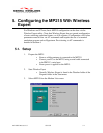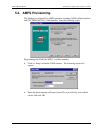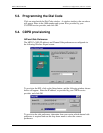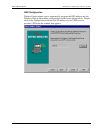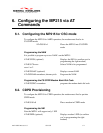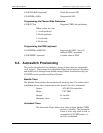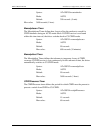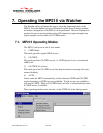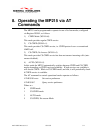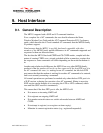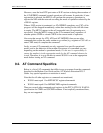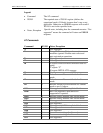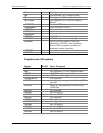
MP215 Mobile Modem Installation, Configuration, and User’s Guide
Sierra Wireless, Inc. 05/11/99 9-2
However, once the host DTE port enters a SLIP session or during the execution of
the AT+WPREG command, normal operations will resume. In particular, if auto-
registration is selected, the MP215 will perform the necessary operations to
register the NEI with the network according the mode of operation selected by the
+WS181 register.
When a SLIP session is terminated, or AT+WPREG completes, any CSC call in
progress will be dropped immediately, rather than waiting for the call-idle timer
to expire. The MP215 returns to the call-suspended state (if registration was
successful). Note the MP215 returns to the AT-command state, regardless of
whether packet-CDPD or circuit-CDPD is the current mode of operation.
Also note that except for ATD, ATO and AT+WPREG, there are no other
commands that require the radio modem to go online (e.g. originate a CSC call, or
enter CDPI state) to complete the command.
Lastly, as some AT-commands are only supported in a specific operational
modes, and as the behavior of the modem in response to a command can vary
depending on the modem’s operational mode, it is the user’s responsibility to
ensure the modem is in the appropriate mode for the AT command about to be
issued. Therefore, it is up to the host to ensure WS181 is set to the appropriate
mode before issuing an AT command.
9.2. AT Command Specifics
Below is a list of AT commands that differ in use or response from the commands
described in the Modem User Guide and the AT Wireless Extension R2.5.2
Guide. Any special operation or restriction is noted.
Note that for all other registers or commands not mentioned,
• WS181 must equal 1 for MP210/CSC registers/commands
• WS181 must equal 0 for MP200/CDPD registers/commands.
There are several other commands and registers in the PCCA STD-101 XANX-L
specification for CDPD and CSCDPD modems. If not explicitly mentioned here,
they are not supported.



